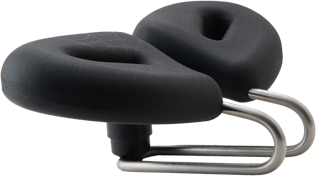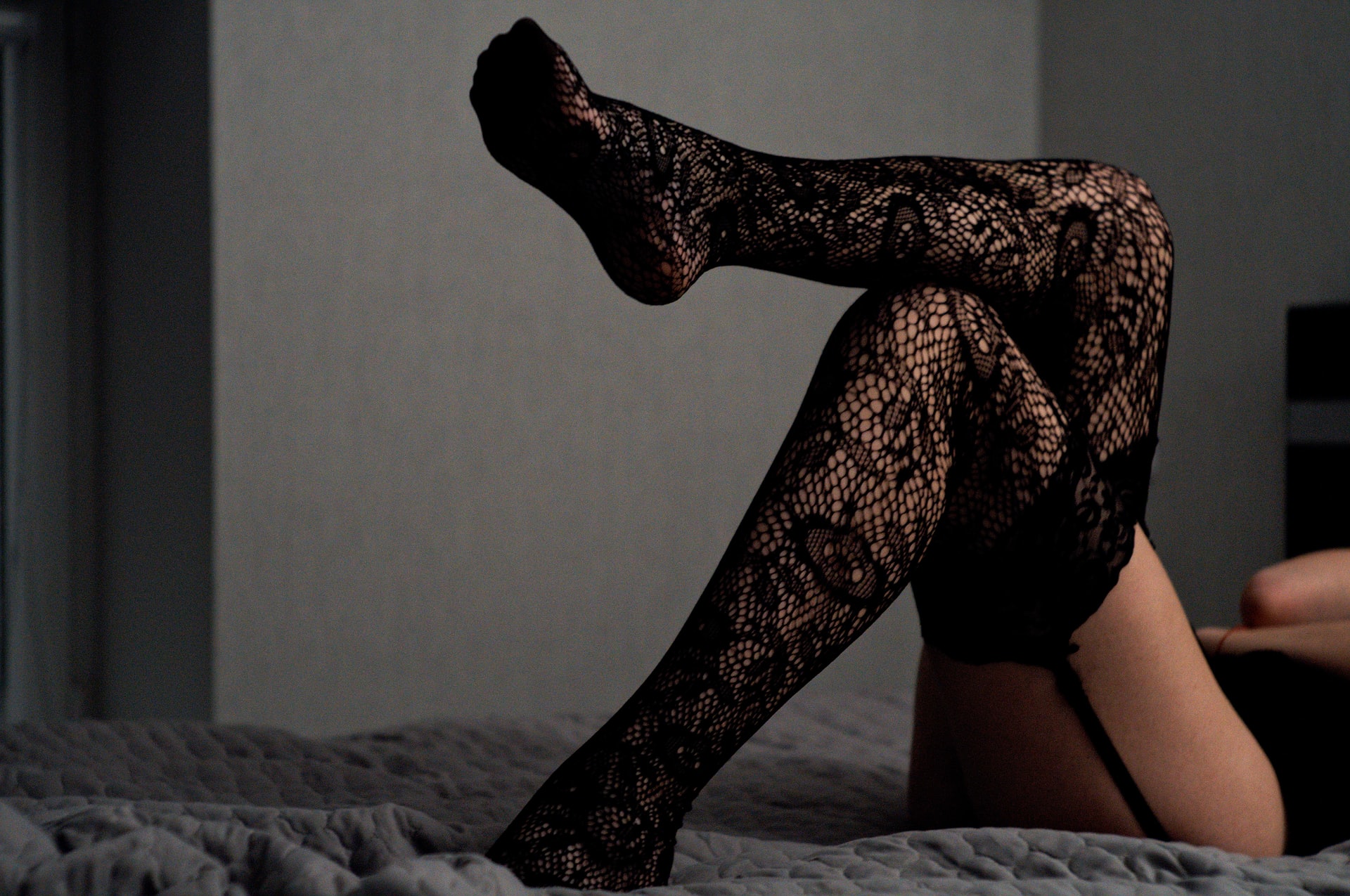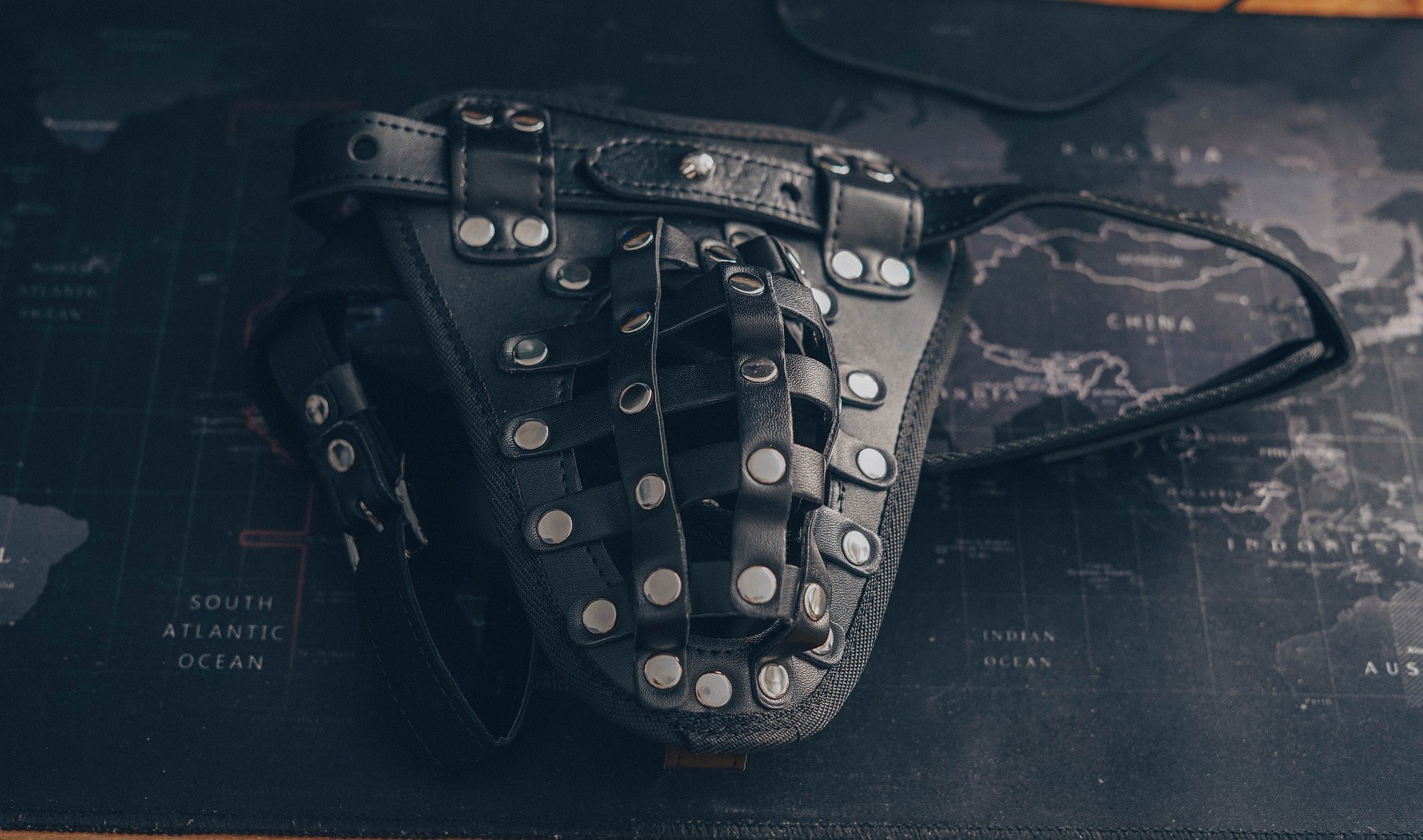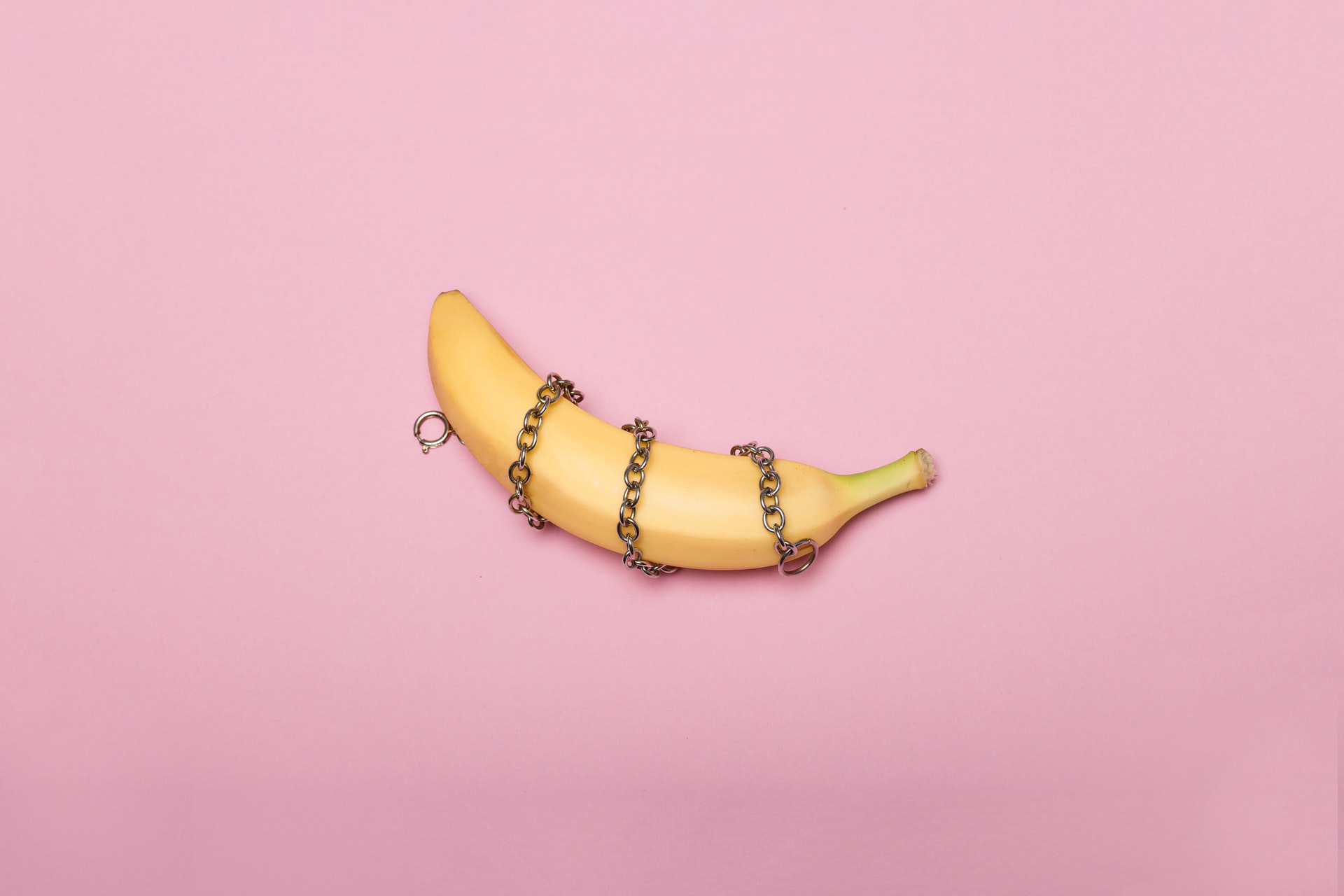Chances are a lot of men out there will face a decrease in penis sensitivity at some point in their lives. Our bodies change for different reasons: we get injured, our hormone levels fluctuate, we go through major life events, we grow old. In fact, men feel the biggest decline in penis sensitivity after they turn 60, aka somewhere between 65 to 75 years old, according to WebMD. Now, the biggest question here is – can you actually increase penis sensitivity? Or you know, once it develops, is there no turning back?
Well, the good news, folks, is that everything isn’t so bleak and gray. There are a couple of things you have to watch out for if you want to prevent a decrease in penis sensitivity. But, I’ll talk all about it later on in this article. First, I want to look into the signs and symptoms of penis sensitivity, as well as the reasons behind it.
Let’s take a look, shall we?
Disclaimer: Before I go on, I just wanted to say that whatever medical issue you think you might be experiencing, the best thing to do is to go to a doctor or consult a medical professional. Don’t replace the info and the advice here for a proper medical diagnosis and treatment.
Symptoms and Signs of Decreased Penis Sensitivity or Penis Numbness
So, there is a difference between a numb penis and one whose sensitivity has decreased. They’re not the same thing, although they can overlap.
A decreased sensitivity in the penis is just that – it’s when you notice that you don’t feel as much sensation in your penis as you did in the past (near or far).
But, when your penis is numb, it means you have trouble feeling any normal sensation on the penis, regardless of its sensitivity.
Loss of sensation or decreased sensation can occur in and on the penis, as well as its surrounding areas, including the testicles and the perineum, aka the area located between the anus and the testicles.
Some of the symptoms of penile numbness can be:
- Cold or burning feeling in or around the penis;
- A tingling, so-called “pins and needles” feeling in or around the penis;
- Purplish or bluish areas on the skin on or around the penis.
As I mentioned earlier, it’s definitely a good idea to pay a visit to your healthcare provider should you experience one or several of these symptoms.
These are the symptoms of penile numbness or insensitivity in a nutshell. Now let’s take a look at what actually causes this in the first place.
What Is the Cause Behind Penile Insensitivity?
Penis insensitivity (or in some cases numbness) can be a result of a variety of medical issues, including injuries to the penis, a decrease in levels of the testosterone hormone, or side effects from certain medications. Often, it also appears because of psychological rather than physiological reasons, so that must be taken into account as well.
And, as I mentioned in the introduction, loss of sensitivity to the penis can happen simply because of old age. Of course, that doesn’t mean that every man that goes past a certain age will feel a decrease of sensitivity in their penis, or even numbness.
What I’m going to do next is elaborate on the reasons behind penis insensitivity a bit more so you can have a better idea of how it appears in each man. Also, it’ll be helpful when we cross over to the part that deals with how to increase penis sensitivity.
Trauma or Injury to the Penis
We all know that the penis has lots and lots of blood vessels and nerves that are the main reason why it works the way it works and why it’s so sensitive.
If you somehow injure these nerves and blood vessels, consequently, you affect the ability to feel sensation in the penis, decreasing it or making it numb altogether.
Now, injury and trauma can happen in many different ways. Surgery, such as spinal or pelvic surgeries, as well as operations that have to do with treating prostate cancer can all affect the nerves and blood vessels in the penis. Trauma to the pelvis caused by some kind of accident can also be a reason why you feel a decrease in penis sensitivity.
A very interesting and a tad controversial reason for penis insensitivity might also be frequent bike rides. Yeah, I know this sounds counterintuitive – how can something that’s always propagated as good for you turn out to be bad for the penis?
Well, of course, this doesn’t mean that biking or cycling are enemies to your penis and your ability to feel pleasure. It’s just that there are some indications that a certain type and shape of the saddle, bike height and type, as well as your posture can have an influence on whether your bike will cause some trouble for your penis or not.
Cycling as a potential cause for penis insensitivity and ED?
Why can cycling potentially cause a decrease in penis sensitivity and ED (erectile dysfunction)? The main reason is that the seat putting constant pressure on the area between the anus and the penis called the perineum. Consequently, the pressure on the genitals can cause harm to the nerves, and can also temporarily slow down the blood flow. In turn, this will often result in a tingling feeling or numbness in the penis or ED.
Throughout the years there have been some faulty studies showing how cycling can cause penis insensitivity and ED. But according to The Guardian, “[t]here have been poor quality studies in the past suggesting that pressure from saddles may compromise blood flow or cause minor injuries that accumulate over time”.
While “[t]ransient erectile issues can arise after very long rides in male riders”, as UC San Francisco professor Benjamin Breyer says, and certainly “riding behaviours that lead to prolonged perineal numbness should be avoided”, we still can’t draw a straight line between cycling and ED or penis insensitivity.
What you can do about it
In any event, if you’re an avid cycler and still notice that you have issues with penis sensitivity or ED, then it might be a good idea to make some changes to your bike and in how you cycle.
For example, consider changing the seat design. According to Harvard Health, there are some indications that narrow seats and narrow V-shaped seats decreased the levels of oxygen in the penis up to 82.4%. So, if you go on very long bike rides, at least a few times a week, and want to avoid this from ever potentially happening, then get yourself a well-padded, wide seat that can absorb the impact of the whole bike ride well. Also, try to look for seats with a nose length of 6 cm or less.
Another thing you can do is stand rather than sit on your bike when riding. This will put less pressure on the perineum area and it can also prevent the occurrence of numbness in the penis. Also, purchase a pair of padded biking pants, if you want to be extra careful.
Low Levels of the Testosterone Hormone
Hormones are extremely important (for both men and women) so-called “chemical messengers” in our bodies that regulate all kinds of processes and physiological functions. And when something in their usual daily trajectory goes haywire, then you can expect some delay to wherever they were heading.
Now, you know about the testosterone hormone. It’s the single most famous sex hormone that people connect with the male body, although it’s also present in females as well. Testosterone is a hormone that plays a big role in regulating the development and functions of our sexual organs.
Low levels of the testosterone hormone in men can have a variety of effects, among which are:
- Impotence and low sex drive;
- Fatigue and lower energy levels;
- Hair loss;
- Anemia;
- Mood changes;
- Reduces muscle mass, as well as bone mass, and an increase in fat in your body;
- And maybe even erectile dysfunction (there’s still debate about this, however).
Scientists still haven’t found a direct link between low testosterone levels and a decrease in penis sensitivity. But, when you think about the set of effects low testosterone has on the sexual and reproductive system (such as loss of libido or sex drive, or even ED), you’ll notice how it may contribute to making you less responsive to sexual stimulation.
Penis Insensitivity as a Side Effect From Certain Medications
As we know, all medications have side effects – it’s just part of the deal, unfortunately. And, as it turns out, certain medications affect sexual performance. A bummer, yes.
But which medications are we talking about? Well, usually we’re talking about medicine that treats depression and anxiety. This means that drugs such as antidepressants may contribute to penis insensitivity. This is because the antidepressants act on neurotransmitters, another type of chemical messengers that are responsible for the communication of nerves and tissue in the body. Neurotransmitters also play a part in the sexual arousal cycle. So, if their current balance is somehow disturbed by, let’s say antidepressant pills, it may also affect their role in our sex drive and arousal.
Another drug that may interfere with a man’s penile sensitivity is the drug Eldepryl (selegiline hydrochloride), whose main use is to treat Parkinson’s disease. That’s because this drug has an effect on our dopamine levels (another neurotransmitter). According to the FDA, this may also cause penile numbness in some people, as a side effect.
A third drug that can potentially affect your penis sensitivity is a class of medicines often used to treat ED. They’re called phosphodiesterase 5 (PDE5) inhibitors, but you probably know them by their more common, market brand names Viagra (or sildenafil), Cialis (or tadalafil), Levitra (or vardenafil), and Stendra (or avanafil).
What this type of drug does is increase the blood flow in and to the penis. But, consequently, they may also inhibit or decrease sensation in the penis, which helps men that struggle with premature ejaculation (PE).
Don’t stop or change treatment without consulting with your doctor first
If you think that some of the medications you’re taking interfere with your ability to feel sensations in your penis, don’t make the mistake of stopping your therapy. Whatever you think of doing, consult with your doctor first, and don’t do anything on your own hand. Maybe your doctor can help you figure out another type of treatment that won’t cause penis insensitivity, or maybe they’ll tell you the medications don’t have anything to do with it, in your case.
Some Medical Conditions Can Also Cause Penis Insensitivity or Numbness
Basically, any sort of medical or health condition that affects the nerves and blood vessels in some way, can also potentially affect penis performance and sensitivity, as well as numbness in some cases.
More serious diseases such as multiple sclerosis, diabetes, as well as problems with your prostate can be the reason why you’re struggling with penis insensitivity.
A cause that’s not widely talked about, but that might be a potential reason, is the so-called Peyronie’s disease (curving of the penis due to formation of non-cancerous scar tissue in the penis). Peyronie’s disease is still not that well understood, which is why it’s also not very present in mainstream discussions of penis insensitivity. This disease may cause the penis to curve notably, but also painful erections and numbness and insensitivity in parts of the penis where scar tissue has grown.
A Decrease in Penis Sensitivity Due to Psychological Issues
It’s a known fact that states such as stress, anxiety, and depression cause a variety of health problems. They lower our immunity, damage cells, and organs, and also interfere with our sex lives and the way our sexual organs work.
Another problem with states of depression, anxiety, and stress is that the more frustrated you get that they affect your libido and sexual performance, the more the effects on the libido get aggravated, while you end up getting even more stressed, anxious, and depressed. It’s like an ugly feedback loop that you can’t get rid of.
On top of that, as I mentioned above, antidepressants can also affect our sex drive and penis sensitivity.
But, of course, not everything’s black and white, and not everything’s so dreary when it comes to penis insensitivity and psychological factors.
There are ways to increase penis sensitivity and get your sex life back on track. Next, I’m going to talk precisely about that and see how you can get the pleasure and joy out of sex again!
How to Increase Penis Sensitivity
So, how you increase penis sensitivity basically depends on what’s causing it. The first thing you need to do, however, should you notice that the sensitivity of your penis has decreased, is to talk to your doctor. They can help you to figure out the particular reasons behind it. By consulting with a medical professional, you can see if the cause is physical or psychological in nature.
How to Increase Penis Sensitivity when the Reason is Psychological
A healthy, well-balanced lifestyle is the answer to many of our health woes. A good diet rich in proteins, fiber, fruits, and veggies, coupled with some kind of physical activity is a great place to start. Try not to sit in one position for too long. Instead, if you have a job that requires a lot of sitting, try moving at least every 15-20 minutes, change your position, or take a walking break if you can.
This is because good food and exercise improve blood flow (in general and to the penis as well!), help your arteries and cells stay healthy, make you more energetic and awake. Also, consider cutting or completely eliminating the use of alcohol and smoking, because they also affect your cardiovascular system.
All of these things contribute to a healthy organism and the healthy functioning of your sexual and reproductive organs.
Another thing that can help you with penis insensitivity (or any other sexual issues you may have) due to psychological reasons is therapy. Consider finding a therapist, preferably one whose narrow specialty is dealing with sexual issues, and start your sessions. They can help you find the best therapeutic strategy to deal with it the best way you can.
If you are a cyclist…
I put my advice on what you need to do if you notice penis insensitivity after intense rounds of cycling in a separate section above, as you probably already saw. The data is still not that clear whether cycling really causes penis insensitivity, although some men claim that it does.
So, the first thing I think you should try doing is to get the so-called “no-nose saddle” as a means to tackle potential nerve damage or pressure to blood vessels in the pelvis.

Source: bikepacking.net
For more details on cycling and penis insensitivity, take a look at the separate section further up in the article.
How to Increase Penis Sensitivity when the Reasons are Physical
Physical reasons for penis insensitivity require many different approaches, depending on what kind of medical condition or injury you are facing. That is why a consultation with a doctor and diagnostics is a key step here for finding the right treatment for you.
There can be several physical reasons for penis insensitivity, ranging from spinal cord injuries, injuries, and diseases to the penis itself, prostate surgery, and other types of (lower body) surgeries, as well as conditions such as diabetes or multiple sclerosis. For these, you should require serious medical knowledge and possible treatments, so you can treat them correctly and successfully. It is important to address any potential such medical issues, not only because they affect the sensitivity of your penis, but also because they may potentially affect other areas of the body and bodily systems, as well as your overall health.
Medications as a cause for penis insensitivity
If your penis insensitivity is due to medications and drugs, talk to your doctor about any potential alterations to the dose or switching to another medication. Never do this on your own, though!
How to Increase Penis Insensitivity Caused by Low Testosterone Levels
Your doctor will diagnose your testosterone levels from a blood test. If they find out you have low levels of testosterone, and you report having feelings of low libido, as well as penis insensitivity, they may suggest testosterone therapy (TT) which will increase your testosterone levels. This kind of therapy can be done in several ways, depending on the needs and preferences of the patient:
- Testosterone injections – these are applied to the muscle and are usually given every week, every two weeks, or every month.
- Transdermal TT – this includes patches that you put on your skin, various creams, gels, lotions. How much it lasts depends on the type of product and what your doctor prescribes.
- Oral TT – such as oral testosterone capsule.
- Intranasal TT – medicine that is pumped in the nose a couple of times a day.
- Testosterone pellets – these are surgically implanted pellets that are put under the skin, into the fatty tissue. They typically last for about 3-6 months.



